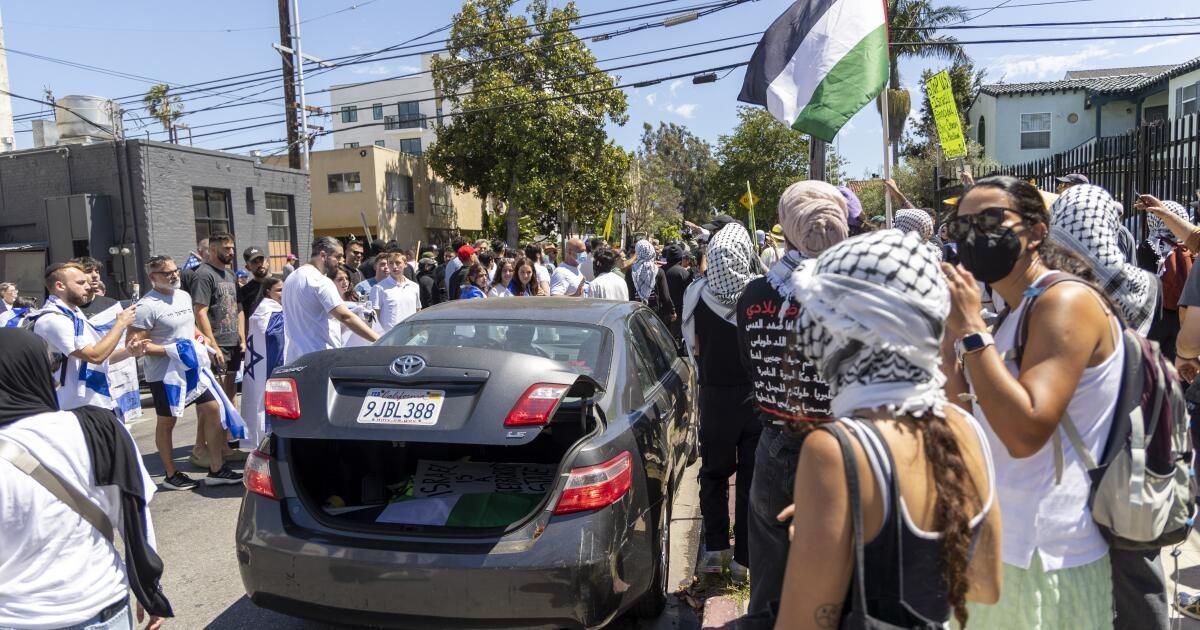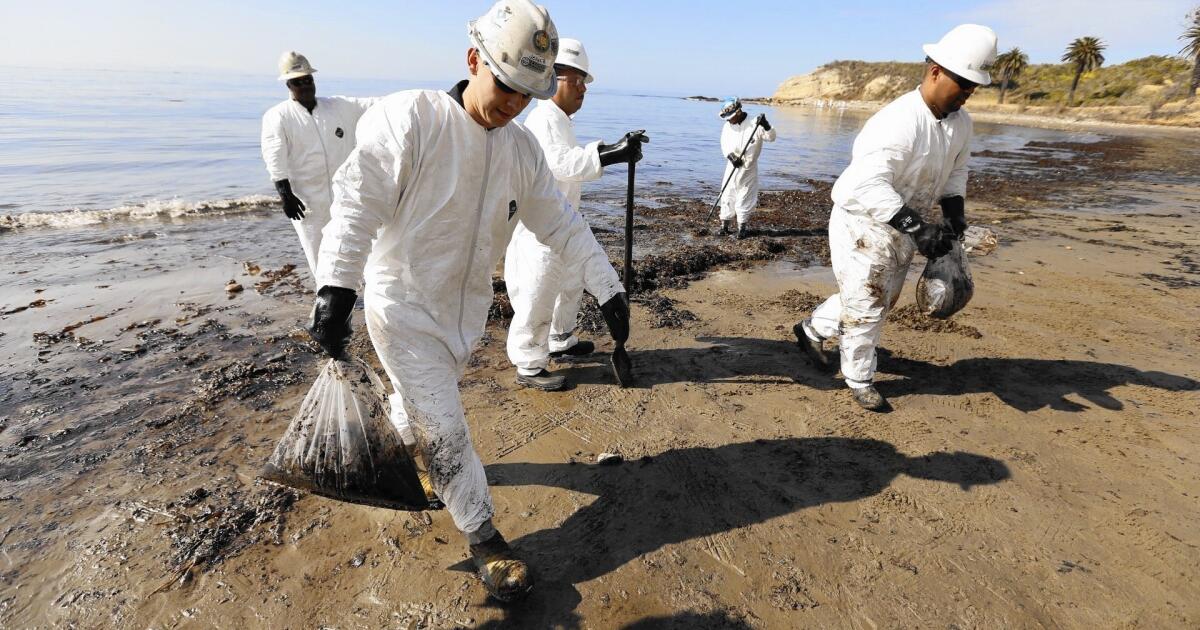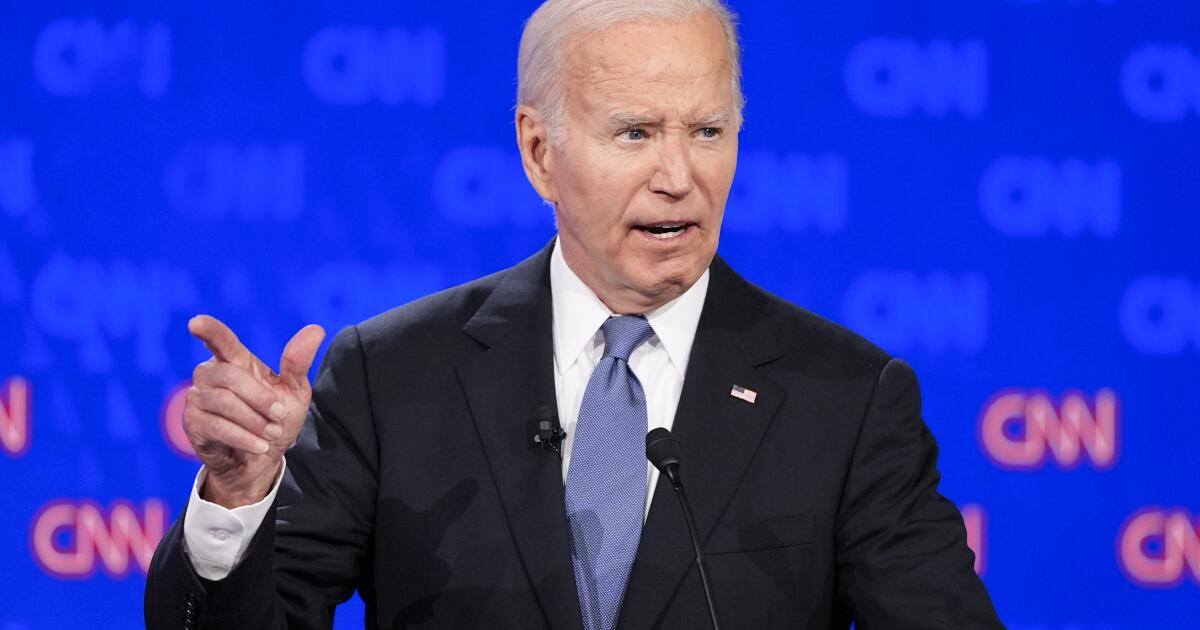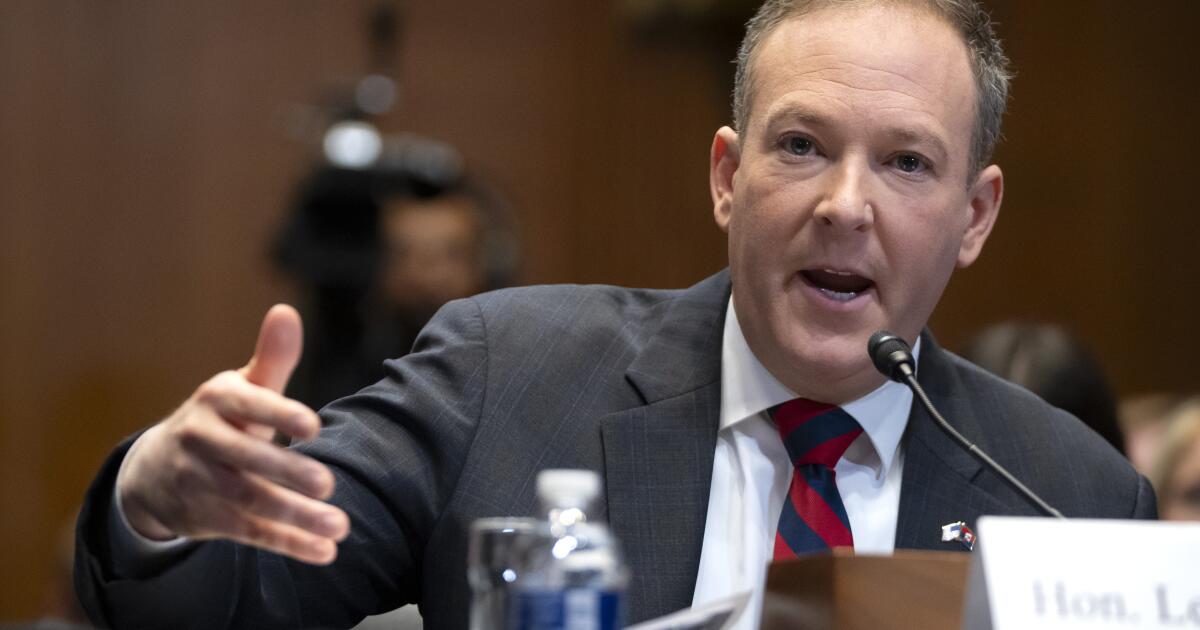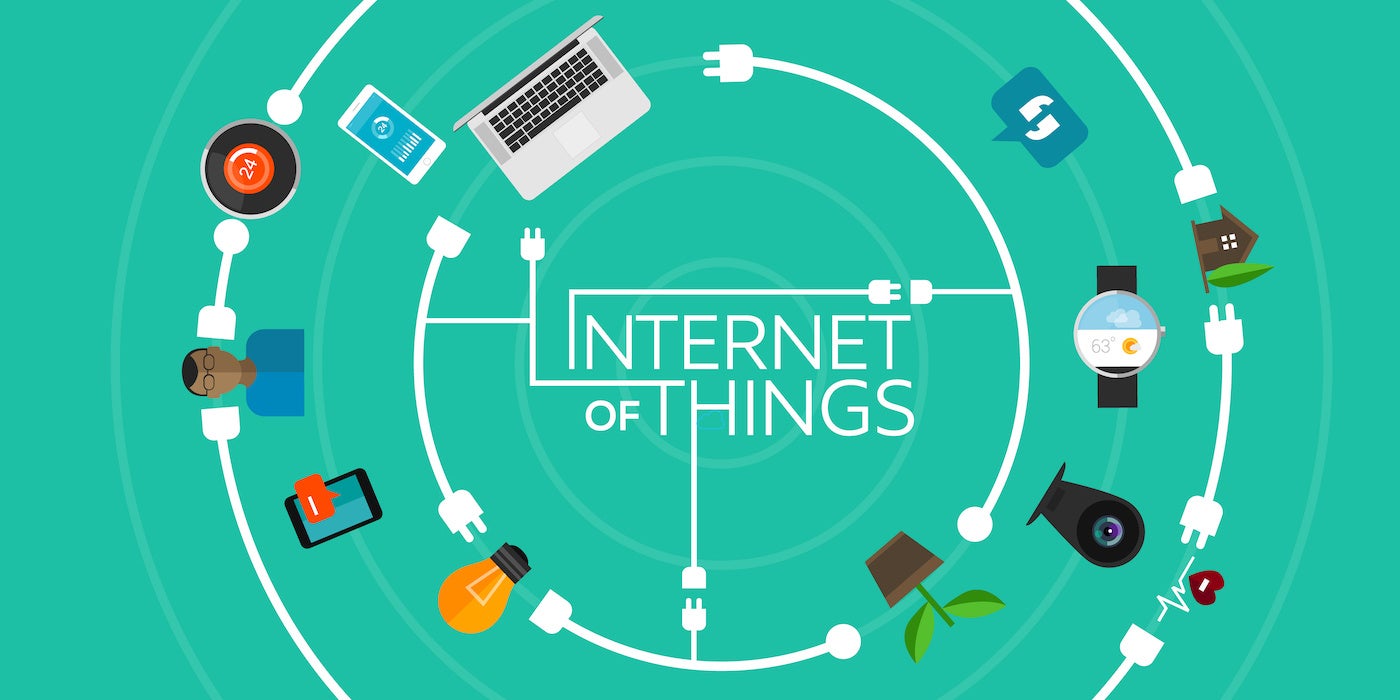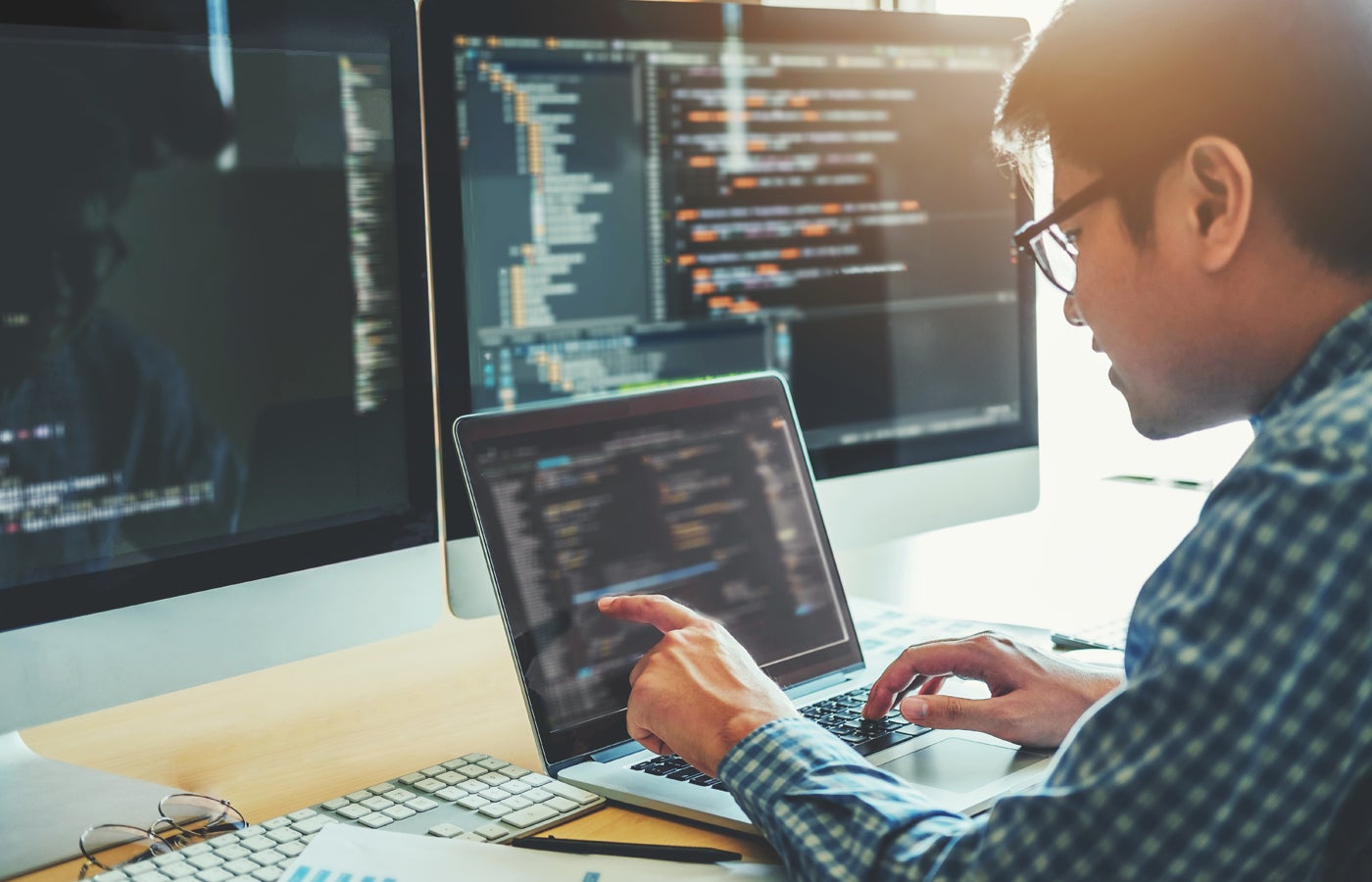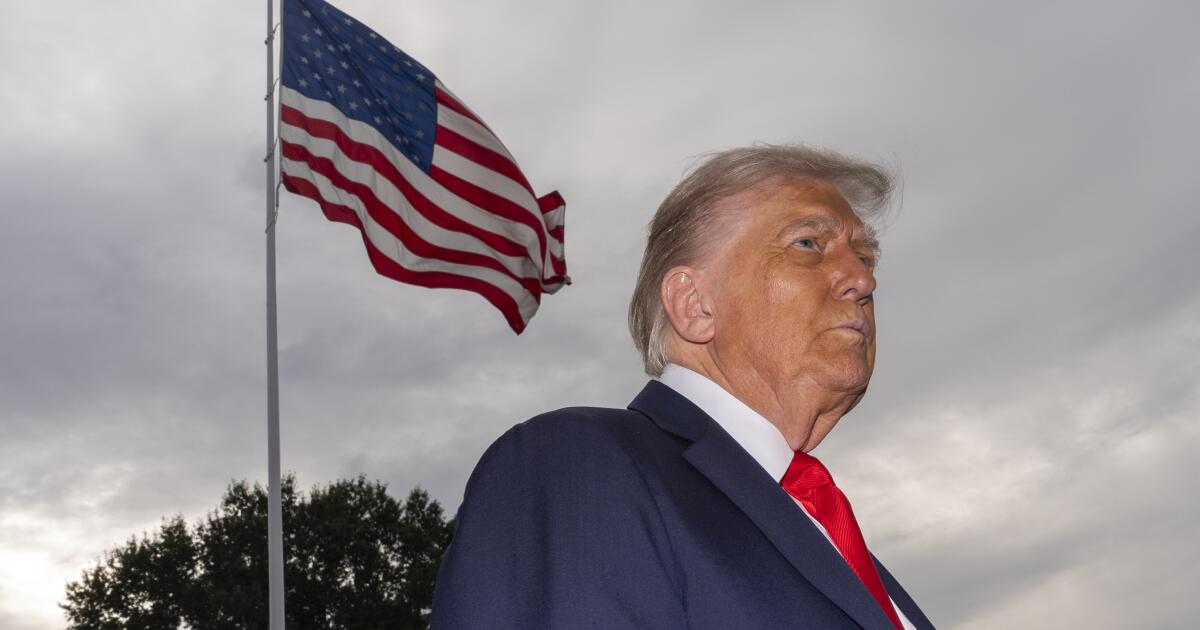One of the ideas Mayor Karen Bass listed that the city could consider in response to Sunday's violence outside the Adas Torah synagogue in the Pico-Robertson area was the role of masks in protests.
To be clear, he didn't say masks should be banned at protests, but for many who heard his speech at the Museum of Tolerance on Monday, that was the takeaway. A possible ban on masks became the focus of news and debates on social media.
It is appropriate for the mayor to speak out decisively against violence between pro-Israel and pro-Palestinian protesters and take steps to prevent its recurrence. His conversation with other city leaders, police and community members may well produce useful insights.
But the ban on masks is not one of them.
Such a ban would likely violate the First Amendment right to expression. But beyond the fact that a court might not allow it, let's examine why it would be a bad idea to adopt a local mask ban.
It is very true that masks can obscure a protester's identity and make it more difficult for law enforcement to identify a person who goes beyond a peaceful protest and engages in violence or other criminal offenses. Masks make it harder to hold criminals accountable. In fact, some pro-Palestinian protesters outside the synagogue on Sunday had their faces covered, as did some of the pro-Israel counterprotesters who tried to dismantle an encampment on the UCLA campus in April.
However, anonymous protests, like anonymous comments, are within the tradition of free speech. Americans are no more obligated to show their faces when expressing their opinions than they are to carry identification documents (or display tattoos or other identifying marks on their bodies) if their actions comply with the law. One might object that hiding behind a mask is a less direct statement than sharing a name and other identifying information, but that's a different issue. People who refuse to identify themselves do not give up their right to express themselves.
Furthermore, there could be compelling reasons for legal protesters to conceal their identities. If they are foreign citizens, for example, they may fear retaliation, including death, from their governments.
U.S. citizens who speak anonymously or hide their faces may want to avoid police surveillance, and should be able to do so as long as they do not threaten or inflict immediate harm on others or engage in other forms of lawbreaking. As the government and private companies track people's movements through license plate readers, traffic cameras, cell phone tracking, and other technologies, Americans who value their privacy and rights need not simply give in. They do not need to give up masks, the lowest-tech means of protection. resisting all high-tech surveillance.
Masks themselves have become political statements and fall within free speech protections. Let us not forget that very recently, the wearing of masks in public was not only permitted, but also encouraged and often mandatory. In theory, refusing to use it could have subjected a person to arrest (although that rarely happened). A person's decision to wear a mask during the COVID-19 pandemic expressed a belief about government policy, personal rights, and respect for medical expertise. In some communities across the country where mask mandates were resisted, stores posted signs warning shoppers that anyone who entered wearing a mask would be considered a shoplifter and would be treated as such, even if masks in public were required by law. .
How would law enforcement distinguish between someone wearing a mask to evade identification and someone who wants to avoid getting COVID? North Carolina officials will have to figure that out after adopting a ban on protest masks with a health exception.
A mask may bear the image of a foreign flag or an American flag (upside down or right side up), or a symbol of a hate group or harmful ideology. But content, no matter how offensive, deserves protection as long as it does not create a reasonable fear of imminent harm.
How about a Ku Klux Klan hood? Isn't it a mask that hides a person's identity and gives them impunity to commit illegal acts?
Some localities and states, including Georgia, ban hoods, arguing that the KKK has long used them to promote “harassment, intimidation and violence against racial and religious minorities.” The Georgia Supreme Court ruled that the goal outweighed Klan members' rights to associate anonymously. Other courts have struck down anti-mask laws.
Los Angeles does not need to ban masks to protect people's right to assemble, practice their religion, protest, or walk down the street. We're interested to know what other plans city officials come up with, but they may leave the mask ban off the list.

